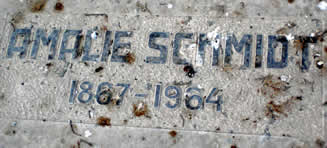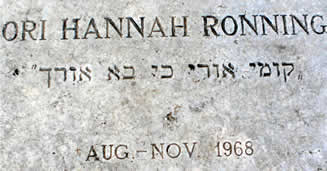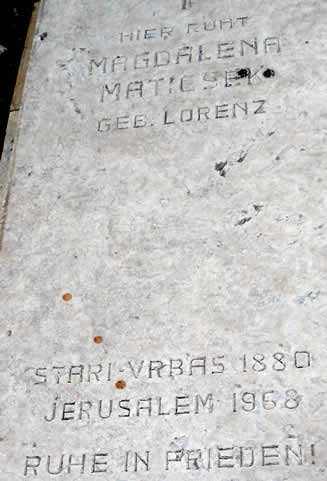|
InteGRATion into
GRATeFULLness
Singing&Sounding keeps me Sound
German Christian Hymns
|
2007_12_26 |
What
I said about the singing at "Weihnachten", Christmas, is true for most of the hymns, I used to sing with utmost fervor, through all the years I went to church, from 1944-1964. I am no longer singing these hymns, since I can't identify with the lyrics, but some of the most cherished deserve to be remembered with grate-full-ness |
While searching for a hymn which would demonstrate the
Protestant "Choral",
I hit upon an excellent example, almost 500 years old:
|
Still singable and therefore inserted
: Es tagt der Sonne Morgenstrahl Geh aus mein Herz und suche Freud Ich steh an deiner Krippen hier
[ So nimm denn meine Haende]
A few samples (letter a, b, c,) Ach Gott, vom Himmel sieh darein Befiehl du deine Wege Christ, der du bist der helle Tag
|
Lyrics:
Martin Luther ,
Tune: found in Johann Walther's Gesangbüchlein, Wittenberg, 1524 Based on a midi tune 1. Aus tiefer Noth schrei' ich zu dir, Herr Gott, erhoer' mein Rufen, Dein gnädig' Ohren kehr zu mir, Und meiner Bitt' sie öffne! Denn so du willst das sehen an, Was Sünd' und Unrecht ist getan, Wer kann, Herr, vor dir bleiben? 2. Bei dir gilt nichts denn Gnad' und Gunst Die Sünde zu vergeben; Es ist doch unser Tun umsonst, Auch in dem besten Leben. Vor dir Niemand sich rühmen kann, Des muß dich fürchten jedermann Und deiner Gnade leben. 3. Darum auf Gott will hoffen ich, Auf mein Verdienst nicht bauen; Auf ihn mein Herz soll laßen sich, Und seiner Güte trauen, Die mir zusagt sein wertes Wort, Das ist mein Trost und treuer Hort, Des will ich allzeit harren. 4. Und ob es währt bis in die Nacht Und wieder an den Morgen, Doch soll mein Herz an Gottes Macht Verzweifeln nicht noch sorgen, So thu' Israel rechter Art, Der aus dem Geist erzeuget ward, Und seines Gott's erharre. 5. Ob bei uns ist der Sünden
viel, |
The text - Psalm 130 [New
King James Version] "Israel" is, of course,
understood as the Christian Community. |
Some links to the hundred thousands of folksongs listed
on the Internet:
Hymns and Spirituals of All Nations
Hymns of the 1912 Lutheran
Hymnal for Church, School and Home
![]()
|
2008_01_11 Nun danket alle Gott |
lyrics:
Martin Rinckart ca. 1636 |
tune: Johann Crueger 1598-1662 |
|
from
K.i.s.s.-Log 2008_01_11
The driver had changed the channel and turned down the
volume.
Suddenly - we had almost arrived - my ears again discerned a song,
not the Russian Valeria this time, but a very popular Christian hymn,
a "Choral", embedded in a music of Bach: "Nun danket alle Gott!"
With this song I got off that car.
|
Martin
Rinkart, ca 1636 Der ewigreiche Gott woll uns bei
unserm Leben Lob, Ehr und Preis sei Gott, dem
Vater und dem Sohne |
I'll make this
|
English
Version by Catherine Winkworth 1865 O may this bounteous God through
all our life be near us, All praise and thanks to God the
Father now be given; |
 Martin Rinckart , ca 1636 |
Martin Rinkart,
a Lutheran minister, was in Eilenburg, Saxony, during the Thirty Years’
War. [I've just remembered the Thirty Years' war in connection with Schiller's Drama Wallenstein] The walled city of Eilenburg saw a steady stream of refugees pour through its gates. The Swedish army surrounded the city, and famine and plague were rampant. Eight hundred homes were destroyed, and the people began to perish. There was a tremendous strain on the pastors who had to conduct dozens of funerals daily. Finally, the pastors, too, succumbed, and Rinkart was the only one left—doing 50 funerals a day. When the Swedes demanded a huge ransom, Rinkart left the safety of the walls to plead for mercy. The Swedish commander, impressed by his faith and courage, lowered his demands. Soon afterward, the Thirty Years’ War ended, and Rinkart wrote this hymn for a grand celebration service. |
 Johann Crueger 1598-1662 |
The last thing I did before going to sleep, was to
find a tune to the hymn and sing to it.
It took me 5-6 attempts to record my singing to the midi-score I had discovered.
One reason was, that I didn't like the modernized language in the site above,
I needed to return to the lyrics which are imprinted in my mind-heart since
childhood.
Another "reason" may have been, that I avoided singing the third
"too Christian" stanza.
Finally my inner voice said: "Why do you make a fuzz about the Christian
"Father&Son"!
It doesn't contaminate you to sing old metaphors of the ONE.
And after all, the last two lines are not so far from what
you know to be more exact!"
2010
Continuation of Graveyard sequence
![]()
| SongGame 2007_12_29 |
SongGame
2007_12_26 German Christian Hymns |
SongGame
2007_12_25 Stille Nacht |
SongGame
2007_12_23 Ihr Kinderlein, kommet |
SongGame
2007_12_22 Es ist ein Ros entsprungen |
SongGame
2007_12_24 Ich steh an deiner Krippen |
SongGame
2007_12_28 Jewish Festival Songs |
I enjoy the diversity of the Christian humans,
who were either buried here like my mother,
or whose tombstones were transferred here
from cemeteries which were closed after 1948.
I want to walk among these "dead" people on the background of the
painted Wall,
Creation and Flood and Recreation
which makes this graveyard even more exciting than it was in 1985 or in 2003.
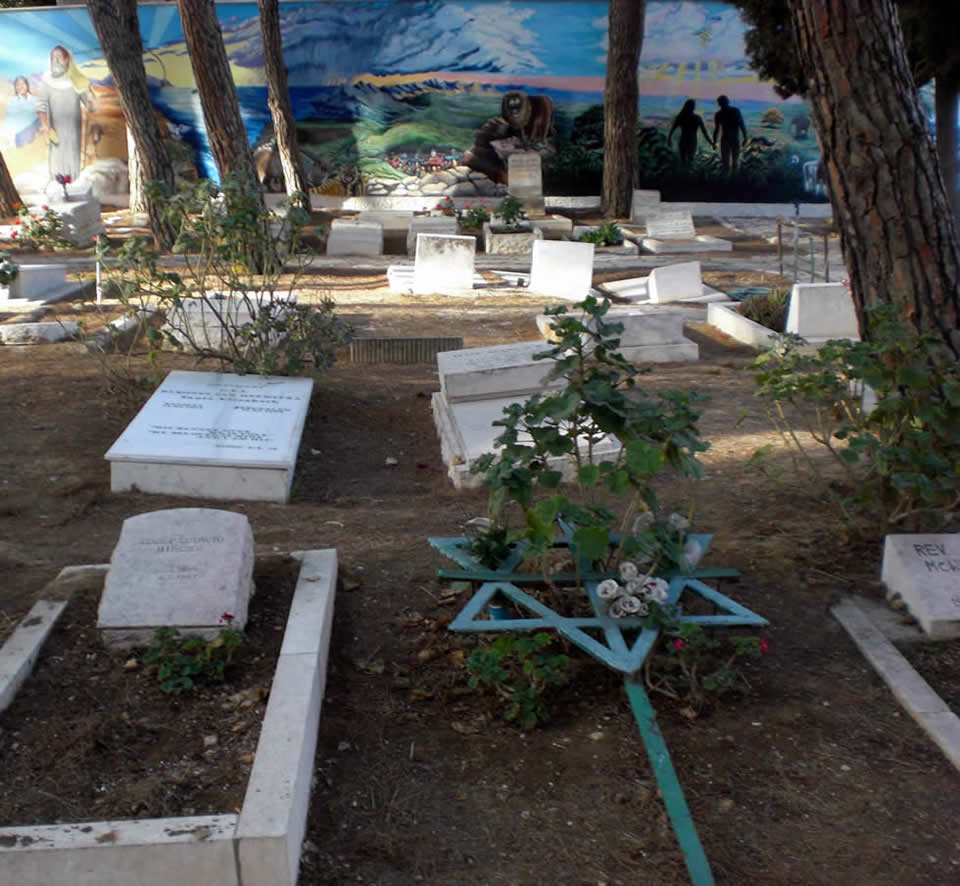
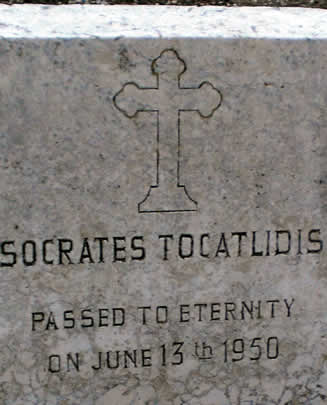 |
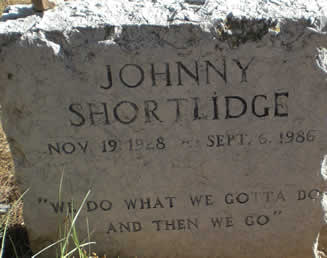 What a sad view about life and death! May this Johnny "Short" become a friend ! of Ida Miryam Bender, who believed, that "the Lord is my Shepherd, I shall not want" [Psalm 23, 1, see the song], though this view, too, is far from satisfying. |
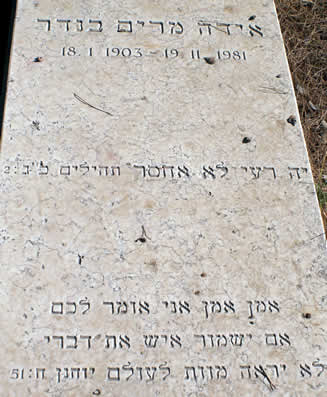 |
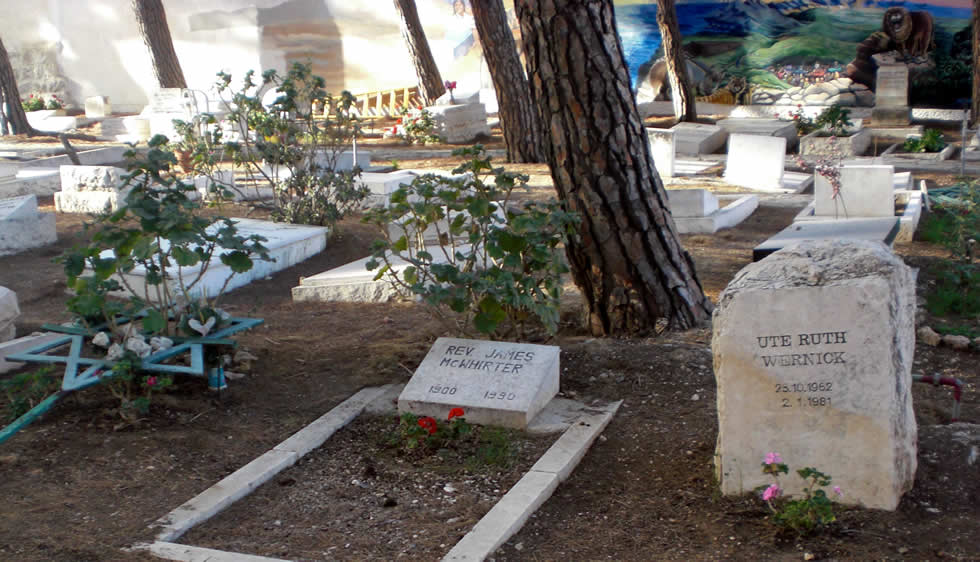
See
what I told about Ute Ruth Wernick, then, in Febr. 1985, when we buried
my mother, the only grave in this row.
I don't know, why the space between her and my mother's grave was left empty
till this Reverend James died in 1990
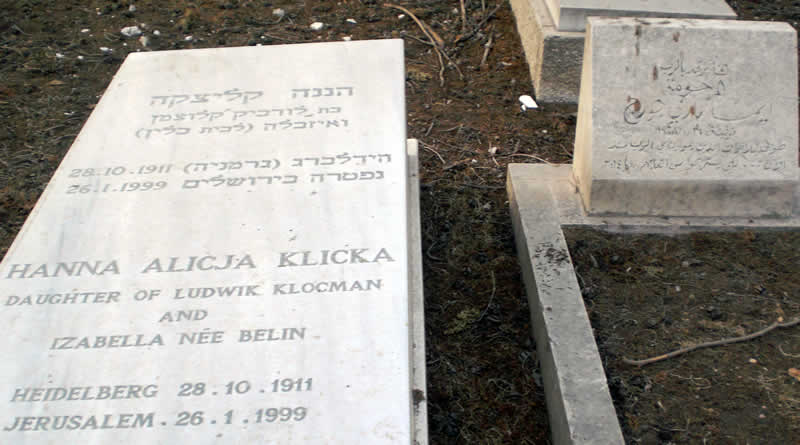
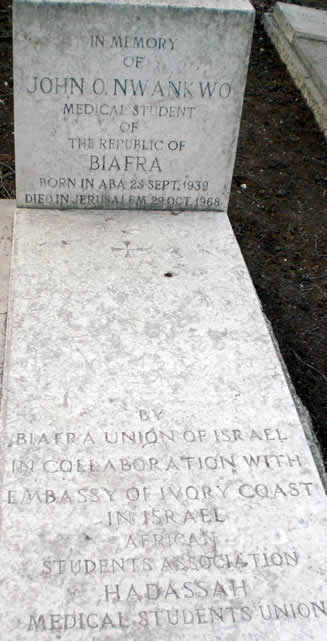 |
Middle: |
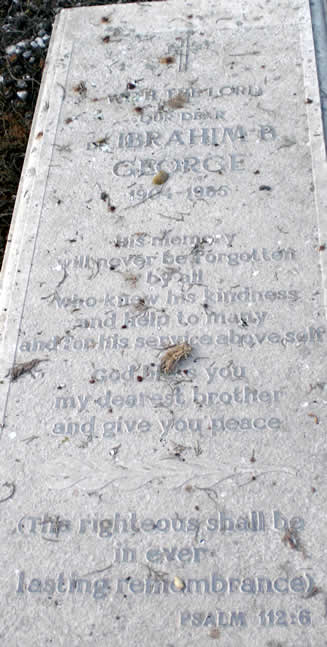 |
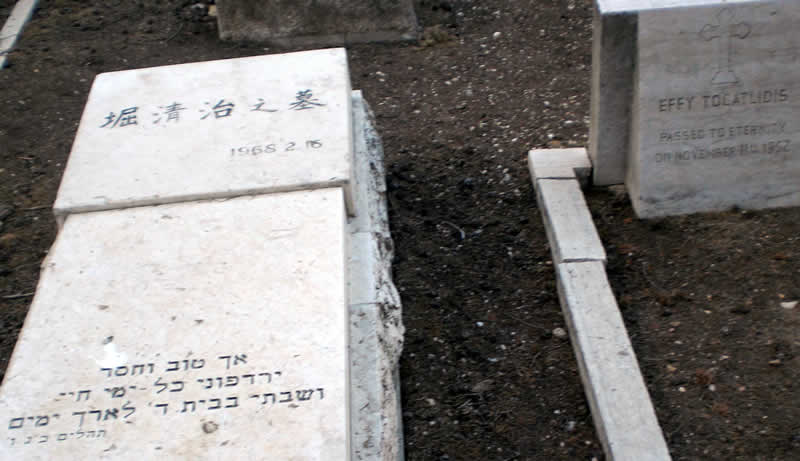
An Asian person (what country, what language, what gender?)
next to a Greek (?) person,
Together with the verse from Psalm
23, I see 3 languages and 3 scripts on two tombstones...
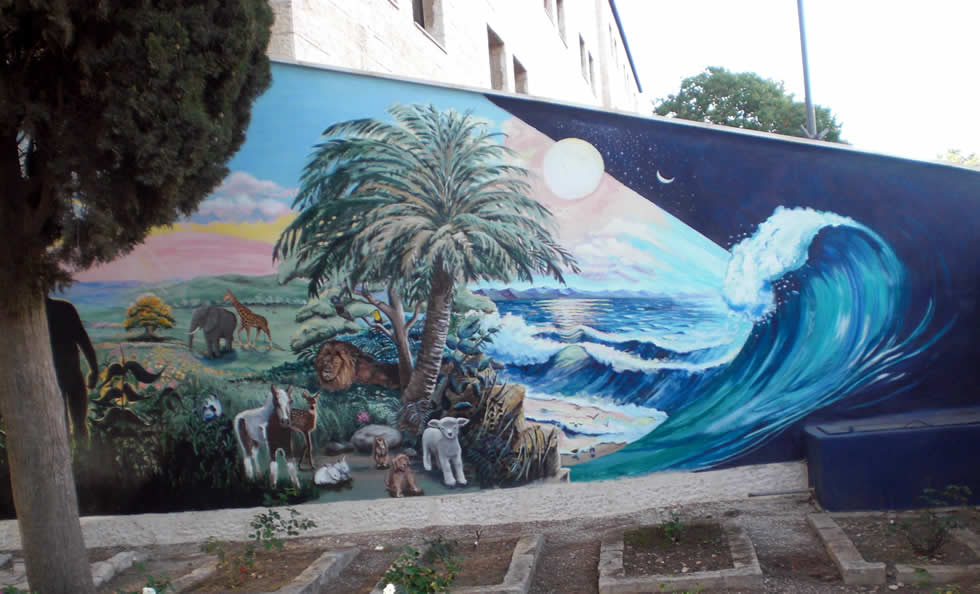
The Flood subsides and the animals rejoice
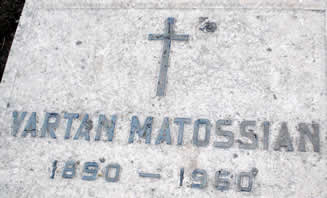 |
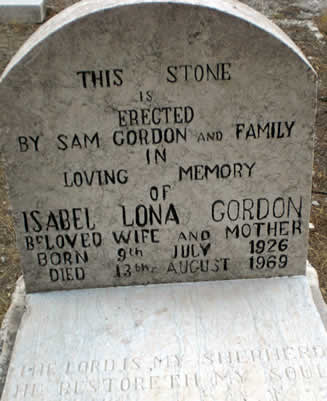 |
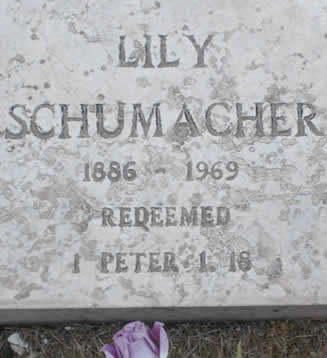 |
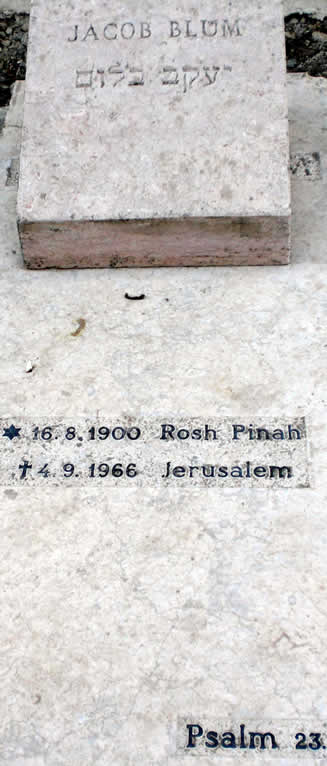 |
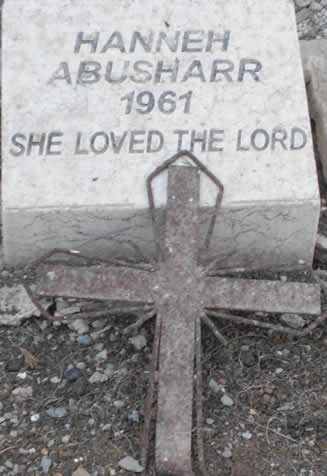 |
|
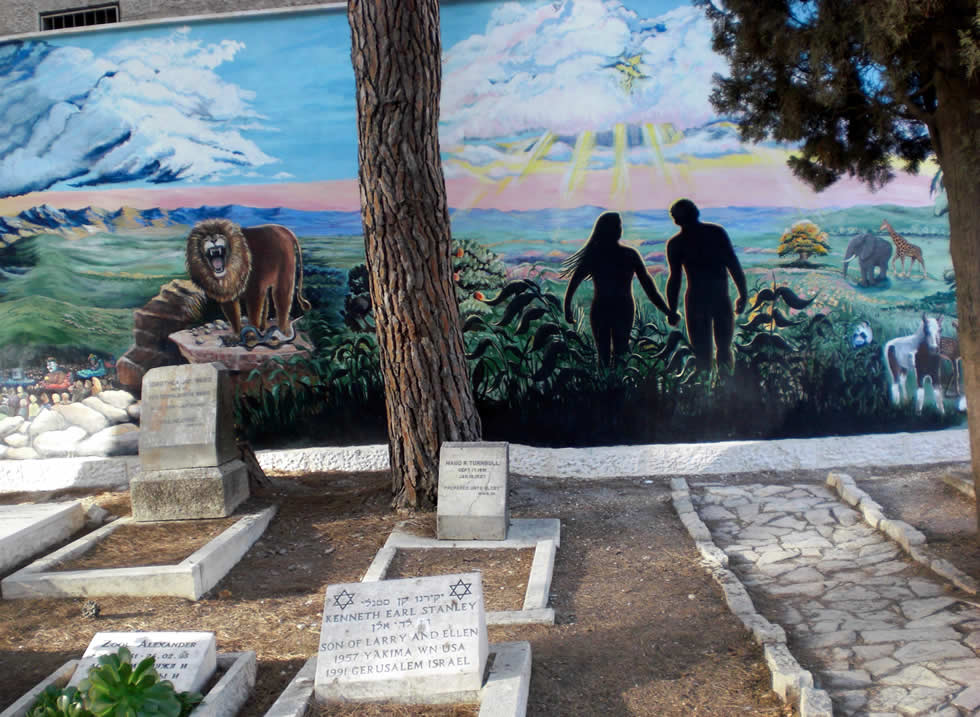
Ish and Ishah walk hand in hand towards the son and
the flying singing birds.

